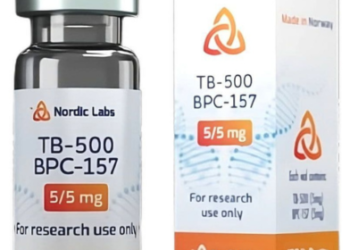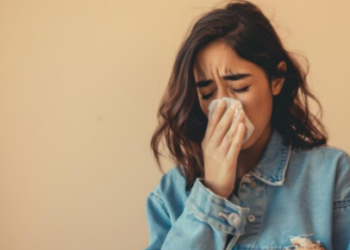1. Understanding Skin Allergies
Skin allergies occur when the immune system reacts to a substance it perceives as harmful. Common triggers include certain foods, plants, insect stings, and chemicals found in soaps and cosmetics. These reactions can cause itching, rashes, and other skin irritations.
2. Symptoms of Skin Allergies
Symptoms of skin allergies typically include itching, redness, swelling, and the appearance of rashes or hives. In severe cases, blisters or welts can form. These symptoms can be uncomfortable and, if not treated, may lead to further complications like infections.
3. Common Causes of Skin Allergies
Skin allergies can be triggered by a variety of substances, known as allergens. Common allergens include pollen, pet dander, certain foods, insect bites, and chemicals in personal care products. Identifying and avoiding these triggers is essential for managing skin allergies.
4. Importance of Skin Allergy Tablets
Skin allergy tablets play a crucial role in managing symptoms like itching and rashes. These medications help reduce inflammation, relieve itching, and prevent further allergic reactions, providing much-needed relief for individuals with skin allergies.
5. Over-the-Counter Antihistamines
Over-the-counter antihistamines, such as cetirizine (Zyrtec) and loratadine (Claritin), are commonly used to treat skin allergies. They work by blocking histamine, a substance produced during an allergic reaction, thus reducing symptoms like itching and rashes.
6. Prescription Antihistamines
For more severe skin allergies, prescription antihistamines like fexofenadine (Allegra) or desloratadine (Clarinex) may be recommended. These medications provide longer-lasting relief and are often used when over-the-counter options are insufficient.
7. Oral Corticosteroids
Oral corticosteroids, such as prednisone, are powerful anti-inflammatory medications used to treat severe allergic reactions. They quickly reduce inflammation and itching but should be used under medical supervision due to potential side effects.
8. Immunotherapy Tablets
Immunotherapy, also known as allergy tablets or allergy shots, involves gradually exposing the immune system to small amounts of an allergen. Over time, this can build tolerance and reduce the severity of allergic reactions, including skin allergies.
9. Calcineurin Inhibitors
Calcineurin inhibitors, such as tacrolimus (Protopic) and pimecrolimus (Elidel), are non-steroidal medications used to treat eczema and other skin allergies. They work by suppressing the immune response that causes inflammation and itching.
10. Emollients and Moisturizers
Regular use of emollients and moisturizers can help manage skin allergies by keeping the skin hydrated and reducing irritation. These products create a barrier on the skin, preventing allergens from penetrating and causing reactions.
11. Antihistamine Creams and Lotions
Topical antihistamine creams and lotions, such as diphenhydramine (Benadryl) cream, provide targeted relief for itching and irritation caused by skin allergies. These products are convenient for localized allergic reactions and can be used in conjunction with oral medications.
12. Cold Compresses
Applying cold compresses to affected areas can help reduce itching and swelling caused by skin allergies. The cold temperature numbs the skin, providing temporary relief and reducing inflammation.
13. Avoiding Allergens
Identifying and avoiding allergens is key to managing skin allergies. Keeping a diary of exposures and symptoms can help pinpoint specific triggers. Avoiding known allergens can significantly reduce the frequency and severity of allergic reactions.
14. Natural Remedies for Skin Allergies
Natural remedies, such as aloe vera, chamomile, and oatmeal baths, can provide relief from skin allergy symptoms. These remedies have anti-inflammatory properties that soothe irritated skin and reduce itching.
15. Antihistamine Tablets
Antihistamine tablets, like diphenhydramine (Benadryl), can be taken orally to provide systemic relief from skin allergy symptoms. These medications are especially useful for widespread reactions affecting multiple areas of the body.
16. Steroid Injections
In severe cases of skin allergies, steroid injections may be administered by a healthcare professional. These injections provide rapid relief from severe inflammation and itching but are typically reserved for the most extreme cases.
17. Preventing Secondary Infections
Scratching due to skin allergies can lead to secondary infections. Keeping nails trimmed and using anti-itch creams can help prevent infections. In case of infection, appropriate antibiotic treatment may be necessary.
18. Role of Diet in Skin Allergies
Certain foods can trigger or exacerbate skin allergies. Identifying food allergies and making dietary adjustments can help manage symptoms. Common food allergens include nuts, dairy, eggs, and shellfish.
19. Importance of Hydration
Staying hydrated is important for maintaining healthy skin. Drinking plenty of water can help keep the skin moisturized and reduce the severity of allergic reactions. Hydrated skin is less likely to become dry and irritated.
20. Allergen-Proof Bedding
Using allergen-proof bedding can help reduce exposure to dust mites, a common trigger for skin allergies. These specially designed covers prevent mites from penetrating pillows and mattresses, reducing allergic reactions.
21. Regular Cleaning and Dusting
Regular cleaning and dusting can help reduce allergens in the home, such as pet dander, pollen, and dust mites. Using a vacuum with a HEPA filter and washing bedding frequently can further minimize exposure.
22. Wearing Protective Clothing
Wearing protective clothing, such as long sleeves and gloves, can help prevent skin contact with allergens. This is especially useful for individuals with sensitivities to plants, chemicals, or other environmental triggers.
23. Medicated Shampoos
Medicated shampoos containing ingredients like ketoconazole or selenium sulfide can help manage scalp allergies. These shampoos reduce itching and inflammation caused by allergic reactions on the scalp.
24. Avoiding Harsh Soaps and Detergents
Using mild, fragrance-free soaps and detergents can help prevent skin irritation and allergic reactions. Harsh chemicals in these products can strip the skin of its natural oils, leading to dryness and increased sensitivity.
25. Consulting an Allergist
Consulting an allergist can provide a comprehensive approach to managing skin allergies. Allergists can conduct tests to identify specific allergens and develop a personalized treatment plan, including medications and lifestyle adjustments.










